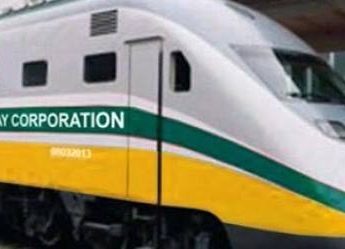Given the penchant of international underwriters to continue collecting War Risk Insurance (WRI) premiums from shippers and operators of Nigeria’s maritime industry amounting to over $1.5 billion in the last three years, stakeholders, notably the Nigerian Maritime Administration and Safety Agency (NIMASA) have canvassed a review and an end to the payment of WRI premium, insisting that it remains an aberration since Nigerian waters are now safe and secure
By Edu Abade
Stakeholders in the Nigerian maritime industry have insisted that the collection of War Risk Insurance (WRI) premiums from ship owners and importers even when there have been no incidents or accidents on the Nigerian waters was no longer sustainable, maintaining that the payment of the premiums to Lloyd Insurance Group of London should be stopped going forward.
Industry experts who gathered at the 2025 edition of the Maritime Reporters Association of Nigeria’s (MARAN) Annual Maritime Lecture (MAMAL), including NIMASA, the Nigerian Ports Authority (NPA) and the Nigerian Shippers Council (NSC), among others under the auspices of the Ministry of Marine and Blue Economy, insisted that the WRI remains a conduit pipe for ripping-off Nigerian shippers and importers and should be scrapped.
Specifically, the Director-General of NIMASA, Dr. Dayo Mobereola, who was represented by Victor …, betrayed industry sentiment by arguing that Nigerian waters remain safe and stable in the last couple of years and therefore, there was no longer need for continued payment of war risk insurance premiums by operators in the nation’s maritime space.
Lamenting that the cost of premiums, amounting to over $1.5 billion in the past three years alone has usually been transferred to Nigerian importers, he said the payment was no longer sustainable and should therefore, be reviewed, removed or completely scrapped through a data-driven reassessment or charter.
To affirm its supremacy in the nation’s maritime domain, NIMASA disclosed that it successfully foiled an attempted piracy incident in the Gulf of Guinea (GoG) on MT Endo Ponente, off Lome, Togo
In a statement made available to journalists on Deep Blue Vessel to the Rescue, Deputy Director and Head, Public Relations at NIMASA, Osagie Edward, said, “At 20:53hrs on Thursday, August 28, 2025, the C4i Centre of the NIMASA received an alert from the Maritime Domain Awareness for Trade (MDAT) Gulf of Guinea Watchkeepers regarding an attempted boarding of the Malta-flagged chemical tanker, ENDO PONENTE at position 05°10’N, 001°23’E, close to Lome Port, Togo.
“Intelligence gathered from the C4i Centre later placed the vessel at 04°19’16”N, 01°35’59”E, within Ghana’s Exclusive Economic Zone. The NIMASA Special Mission Vessel DB Lagos, operated by the Nigerian Navy under the Deep Blue Project, was immediately alerted and is currently closing in on the distressed vessel. The crew members retreated to the Citadel in line with international best practice for ship security.”
NIMASA assured that it was actively coordinating with the Nigerian Navy and other regional maritime security agencies to ensure the safety of the crew and to support ongoing investigations into the incident.
Commenting on the development, Mobereola reaffirmed the Agency’s commitment to regional maritime security cooperation, saying, “NIMASA remains committed to strengthening security collaboration across the Gulf of Guinea to safeguard seafarers, deter criminal activity, and ensure safer maritime trade, leveraging on the Deep Blue Project.”
Also speaking at the MAMAL event, Secretary-General of the Abuja Memorandum of Understanding (MoU), Captain Sunday Umoren stated that ship owners are the ones gaining from the war risk insurance premium, adding, “When we get to that point of having most of the shippers or ship owners being Nigerians, bringing things into Nigeria, they can determine what they want to do.
“We also should look at the internal factors. Why is bunkering not really moving in Nigeria? Why do you have to take so much permission, what’s for approvals for you to be able to bunk up vessels in Nigeria? Why do you have bottlenecks in the loop? If we are in a place where ships are forced to come into, to visit our port, we can actually have that bargaining power, that bargaining chip. But where we are today, we are begging them to come.
“But if ships must come to bunker, they will also feel the pinch, the ship owners, and they will also mount pressure on the world to ensure that the premium, which eventually leads to higher freight, is being reduced.”
On his part, the Flag Officer Commanding (FOC), Rear Admiral Gregory Oamen, who was represented by Captain Olanrewaju Oginni, presented a paper titled: Analysis of Maritime Incidents and the True State of Security in Nigerian Waters: Nigerian Navy Policing Roles in Perspective, noting that a secure maritime environment remains one of paramount importance for the attainment of economic development and national security goals.
“In achieving these goals, littoral nations strive to protect the natural resources within their Maritime Environment (ME) in order to ensure their sustainable exploitation. These resources are often exposed to incidences such as illegal exploitation, exploration, and maritime crimes that impinge on socio-economic development and security of most littoral nations.
“Some of these maritime incidents refer to all events that occur at sea also include piracy, Crude Oil Theft (COT), sea robbery, illegal Unregulated and Unreported Fishing (IUUF) and smuggling, amongst others. To ameliorate these challenges, most navies in the world conduct maritime policing operations to ensure Maritime Security (MS) in their ME.
“The policing operations targeted at addressing these incidents/threats include anti-piracy, anti-fishery, anti-COT and anti-smuggling operations, among others. Accordingly, effective curbing of maritime incidents is germane to the MS capability of every successful nation.”
On ways of curbing maritime incidents for enhanced maritime security, he explained that the NN policing operations for enhanced maritime security could be improved through various strategies, adding that some of these strategies include the provision of regular SIF for NN ships and installation of additional sensor sites as well as the integration of drones into NN MDA systems.
“On provision of regular SIF for NN ships, the challenge of inadequate platforms could be addressed by the provision of regular SIF for NN capital ships. The objective of the SIF is to enable the NN to acquire the right mix of platforms required for NN policing operations in the ME. This will be used to provide logistics requirements to deploy vessels for policing operations and sustain patrol of at least 4 ships in each three NN commands daily.
“The SIF would also enhance the ability of NN to refit and repair some of her ships, which are currently not operational. Additionally, it would enable the NN to complete the ongoing NN ship acquisition projects in several countries, complete the local construction projects as well as ensure their timely completion and delivery to the NN. The availability of these ships would improve the NN sustained presence at sea and thereby curb maritime incidents at sea.
“The installation of additional sensor sites and integration of drones into already existing MDA systems would address the problem of limited backwater coverage. The objective is to have maximum coverage of the ME, particularly the backwaters. This would also help to curb the increasing rate of pipeline vandalism, COT, damage to the ecosystem, militancy and sea robbery emanating from this area. “Additionally, this will provide real real-time picture of the activities within the backwaters, thereby enhancing the surveillance capability of NN towards improving the NN policing operations. The infrared sensor which is capable of identifying objects in dense vegetation could be acquired and installed in areas where the NN has existing FE sensor sites but directed towards the backwaters.”
In his concluding remarks, he pointed out that the NN is constitutionally vested with the responsibility of policing the ME for economic development, adding, “The increasing demand to protect the natural resources within the ME to ensure their sustainable exploitation for economic development necessitates the emplacement of adequate measures for effective policing.
“Over the years, the NN has made modest policing efforts to ensure economic development in Nigeria. These efforts include law enforcement, deployment of MDA assets and collaboration with key maritime stakeholders. In spite of these efforts, there are various challenges limiting NN policing operations for economic development. These include inadequate platforms in NN inventory and limited backwater coverage by NN MDA systems.
“The challenge of inadequate logistics could be addressed by the provision of a regular SIF for NN capital ships. To this end, the NN could advocate for a regularized SIF from the FGN for its capital ships acquisition, maintenance and logistics support to enable it to sustain its policing operations in the ME. This could be done by capturing SIF for capital ships as a sub-head in the NN’s yearly budget and disbursed biannually. The NN could advocate in the short term for regular SIF support to ensure attainment of the FGN’s economic development drive. This will be used to sustain a patrol of at least four ships in each of the three NN commands. In doing this, the NN would increase presence at sea and redouble its policing operations effort for enhanced maritime security and economic development.”
In his welcome, President of MARAN, Mr. Ewrhujakpor Godfrey Bivbere, expressed delight at the robust participation of the event, saying, “Today, we gather not only to exchange ideas but to confront a pressing challenge that continues to shape the trajectory of the maritime industry: The burden of war risk insurance on Nigerian maritime trade.
“This year’s theme could not be more timely or relevant. As Nigeria strives to reposition itself as a hub of maritime excellence in West Africa, the persistent imposition of war risk premiums on vessels calling at our ports remains a significant obstacle to competitiveness, cost-efficiency, and investor confidence.
“It is a burden that affects not just ship owners and terminal operators, but the entire value chain-from importers and exporters to the average Nigerian consumer and MARAN, as the voice of maritime journalism and advocacy, is proud to convene this forum where industry leaders, policymakers, security experts, and global partners can engage in robust dialogue.
“Our goal is clear: To explore actionable solutions, foster transparency, and galvanize collective effort toward lifting the war risk designation that has long shadowed our waters. We are honoured to host distinguished speakers and panelists whose insights will illuminate the path forward. Their expertise will help us understand the root causes, assess the impact and chart a course toward restoring confidence in Nigeria’s maritime domain.”
He also commended the Federal Ministry of Marine and Blue Economy, NIMASA, NPA and security agencies for their ongoing efforts to enhance safety and compliance in the nation’s ports and waterways pointing out that their works lay the foundation for a future where Nigerian trade could thrive without punitive insurance surcharges.




